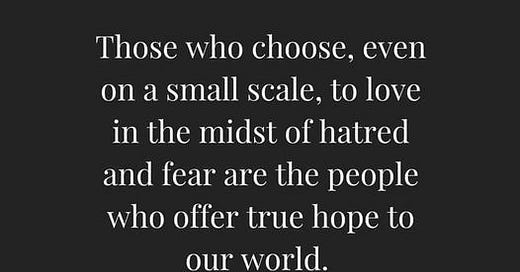In her book Tomorrow Will Be Different: Love, Loss, and the Fight for Trans Equality, Sarah McBride talked about her fascination with history, politics and social change including Abraham Lincoln, Franklin Roosevelt’s New Deal, and the fight for equal rights. “Each generation, it became clear, was defined by whether they expanded equality, welcoming and including people who had once been excluded or rejected. And as I began to understand that there was something about me that society disapproved of, I became drawn not just to the history but also to the possibility of politics as a means of fixing society. Of creating a world that was a little more loving and inclusive. Even if I couldn’t fix it for myself, I thought that fixing it for others could make my life worthwhile.”
In 2020, Sarah McBride became the first openly transgender person elected as a state senator in the United States. She is now the nation's highest ranking openly transgender elected official and the first openly transgender member of the United States Congress. She has been misgendered by colleagues addressing her as “Mr. McBride” and was met with a proposed policy to ban her from the women’s restrooms at her workplace. However, she isn’t letting this deter her from her job and purpose of representing the interests and wellbeing of her constituents.
Growing up transgender, Sarah said, “Halloween was one of the few opportunities when it became remotely socially acceptable for me to express myself. So while every other kid was going out as something or someone else, it was one of the few opportunities that I had to go out as me.” After she got a computer of her own in middle school, she learned that transgender people have existed throughout time and across cultures.
Sarah’s parents and many others have trouble empathizing or understanding “how it might feel to have a gender identity that differs from one’s assigned sex at birth.” Sarah told them, “The best way I can describe it for myself is a constant feeling of homesickness, an unwavering ache in the pit of my stomach that only goes away when I can be seen and affirmed in the gender I’ve always felt myself to be.”
Sarah’s parents became some of her biggest supporters and allies. Sarah shared: “I wanted them to love me as their daughter, not as the person they thought was their son. I wanted them to see and love me as me. Each of us has a deep and profound desire to be seen, to be acknowledged and to be respected in our totality. There is a unique kind of pain in being unseen. It’s a pain that cuts deep by diminishing and disempowering. And whether done intentionally or unintentionally, it’s an experience that leaves real scars.”
In her twenties, Sarah lost her transgender husband to cancer just a few days after their wedding. She wrote that: “even with a supportive progressive family, hate had kept Andy inside himself for what turned out to be the majority of his life. None of us know how long we have, but we do have a choice in whether we love or hate. And every day that we rob people of the ability to live their lives to the fullest, we are undermining the most precious gift we are given as humans…. Each time we ask anyone, whether they are transgender, black, an immigrant, Muslim, native American, gay or a woman to sit by and let an extended conversation take place about whether they deserve to be respected and affirmed in who they are, we are asking people to watch their one life pass by without dignity or fairness. That is too much to ask of anyone…. Every day matters in this fight. Dr. King called it ‘the fierce urgency of now.’ Hope can be limitless. Inspiration can always be found. Ideas are endless, but time— that is one resource none of us can afford to waste.”





